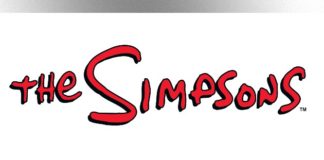Getting stuck doing the office tea round is something we all dread, but turns out women are twice as likely to be asked to make tea or coffee for all their colleagues than men.
Worrying new research, which has echoes of offices from other eras, revealed gender biased language and use of stereotypes is still widespread within workplaces, with 42% of women claiming they’ll be asked to make a round compared to just 16% of men.
The poll of 2,000 UK employees, commissioned by Samsung UK and Ireland, also found that females are also asked to do menial or admin-based tasks (37% vs 19%), while women in the workplace are also more likely (50% vs 21%) to be asked about the wellbeing of their children.
It additionally emerged women are made the target of sexist jokes almost three times more than men (43% vs 15%) and those polled hear gender-biased language in their workplace an average of four times a week.
Read more: How to call out a friend posting sexist views online
Specific instances included “persistently being called lady, sweetheart, or darling” and “being referred to as a woman ‘of my age’ after requesting a fan”.
Turns out the gender specific comments aren’t just made round the water cooler or in informal chats with colleagues with 40% experiencing such language in meetings and 30% during job interviews.
Commenting on the results Tanya Weller, founder of employee resource group, Women@Samsung, said: “The findings have revealed some shocking revelations about the stereotypes used towards women at work and how our choice of words is creating barriers to inclusivity in the workplace.
“Like all things, language adapts with time, and we know that as a society, we must evolve with it, by implementing a roadmap that drives greater equality and inclusion.”
On a more positive note, the research suggests UK employees are starting to challenge this vocabulary, with 64% calling out gender biased language.
Of those taking a stand, 28% highlighted it to the person directly, 22% reported it to their boss and 14% went to HR.
Read more: Joan Collins sparks debate after saying it’s ‘tremendously rude’ to ask a woman her age
While 92% are making a conscious effort to use inclusive language at work with terms such as ‘team’ and ‘all’.
But not everyone feels confident in calling out gender based sexism at work with almost a fifth (19%) saying they’ve wanted to correct someone but chose not to because they didn’t have the confidence.
As a result experts are urging employers to take proactive steps to foster inclusive language in order to build a workplace which promotes workplace inclusivity.
“With almost half of UK employees using gender bias language at work, companies must do more to understand how and where unconscious bias is showing up and take action to remove it,” explains Jackye Clayton, of Textio, a language software company.
“It’s only by doing this that companies can become truly inclusive to everyone.”
Watch: Sexism at the Rio Olympics
But it seems there’s a long way to go, with the study, carried out via OnePoll, finding that just 20% of employees are fully aware of what their company is doing to challenge gender biased language.
Actions they’d like their employers to take include offering inclusivity training (47%), training on gendered language (30%), and a review of terms used in job descriptions (28%).
There is also support for a review of external messaging language as seen on company websites and careers pages (27%), and a desire for positive messaging or signage in offices (24%).
“These findings tell us the crucial role language plays in normalising gender stereotypes at work,” Weller added.
“Subtle phrases like ‘Hi Guys’ is something many of us say without thinking, but maybe without realising it, we’re alienating people.
“This acts as a great reminder to be thoughtful in the way we express ourselves as individuals and as businesses.”
Read more: Will coronavirus spark end of office tea round and communal birthday treats?
Louise Mullany, professor of sociolinguistics and an expert on the language of diversity and inclusion, has provided some alternative words and phrases offering advice on how people can switch to using gender neutral language at work, including people instead of guys, everybody instead of lads, and team instead of ladies.
Gendered words to use and avoid in the workplace
Words to use
People
Everyone
Everybody
Folks
They
All
Team
You
Words to avoid
Guys
Girls
Lads
Ladies
He/she
Sweetheart
Darling
Love
Additional reporting SWNS.








